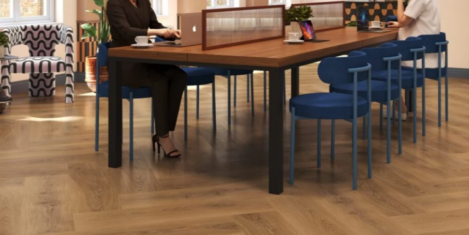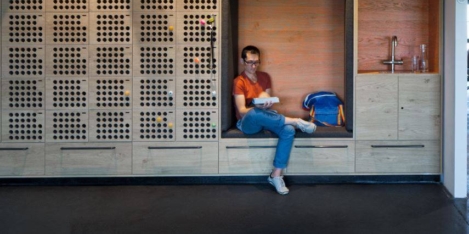December 3, 2024
Working life in 2024 is defined by stress, poor management and loneliness
 The 2024 State of the Global Workplace report by Gallup sets out to provide a comprehensive analysis of employee experiences worldwide, revealing a large number of people who feel they are under increasing strain. Despite living in an era of remarkable technological and economic advancements, workers face significant challenges, with stress, disengagement, and declining mental health prominent in people’s daily working life. The report suggests that 41 percent of employees experience high levels of daily stress, with poor management practices being a major contributing factor. One in five workers report daily loneliness, an issue particularly pronounced among remote employees. (more…)
The 2024 State of the Global Workplace report by Gallup sets out to provide a comprehensive analysis of employee experiences worldwide, revealing a large number of people who feel they are under increasing strain. Despite living in an era of remarkable technological and economic advancements, workers face significant challenges, with stress, disengagement, and declining mental health prominent in people’s daily working life. The report suggests that 41 percent of employees experience high levels of daily stress, with poor management practices being a major contributing factor. One in five workers report daily loneliness, an issue particularly pronounced among remote employees. (more…)











 Businesses across all sectors are having to re-think their employee experience and wellbeing strategies to provide support to staff in the wake of the pandemic. According to new research from
Businesses across all sectors are having to re-think their employee experience and wellbeing strategies to provide support to staff in the wake of the pandemic. According to new research from 
 New research from
New research from 
 The ongoing Covid-19 pandemic has heightened existing feelings of loneliness and isolation among people aged 55 and over, according to a new report by housing provider
The ongoing Covid-19 pandemic has heightened existing feelings of loneliness and isolation among people aged 55 and over, according to a new report by housing provider 
 A new survey by UK job board
A new survey by UK job board 
 Flexible working arrangements are those which ‘allow employees to vary the amount, timing or location of their work’ and may include part-time working, mobile/home working, compressed hours or job-sharing – among others. Before the lockdown, according to the Chartered Institute of Personnel Development (CIPD), more than half of all employees in the UK used at least one form of flexible working, while a study by Gallup in the US suggests as many as 43 percent of employees already worked flexibly. The practice has been found to have positive effects on job satisfaction, employee commitment, reducing work-family conflict – and for many is now an essential component of modern working life.
Flexible working arrangements are those which ‘allow employees to vary the amount, timing or location of their work’ and may include part-time working, mobile/home working, compressed hours or job-sharing – among others. Before the lockdown, according to the Chartered Institute of Personnel Development (CIPD), more than half of all employees in the UK used at least one form of flexible working, while a study by Gallup in the US suggests as many as 43 percent of employees already worked flexibly. The practice has been found to have positive effects on job satisfaction, employee commitment, reducing work-family conflict – and for many is now an essential component of modern working life. 













June 14, 2022
Loneliness might hold back hybrid working productivity gains
by Gosia Bowling • Comment, Flexible working, Wellbeing